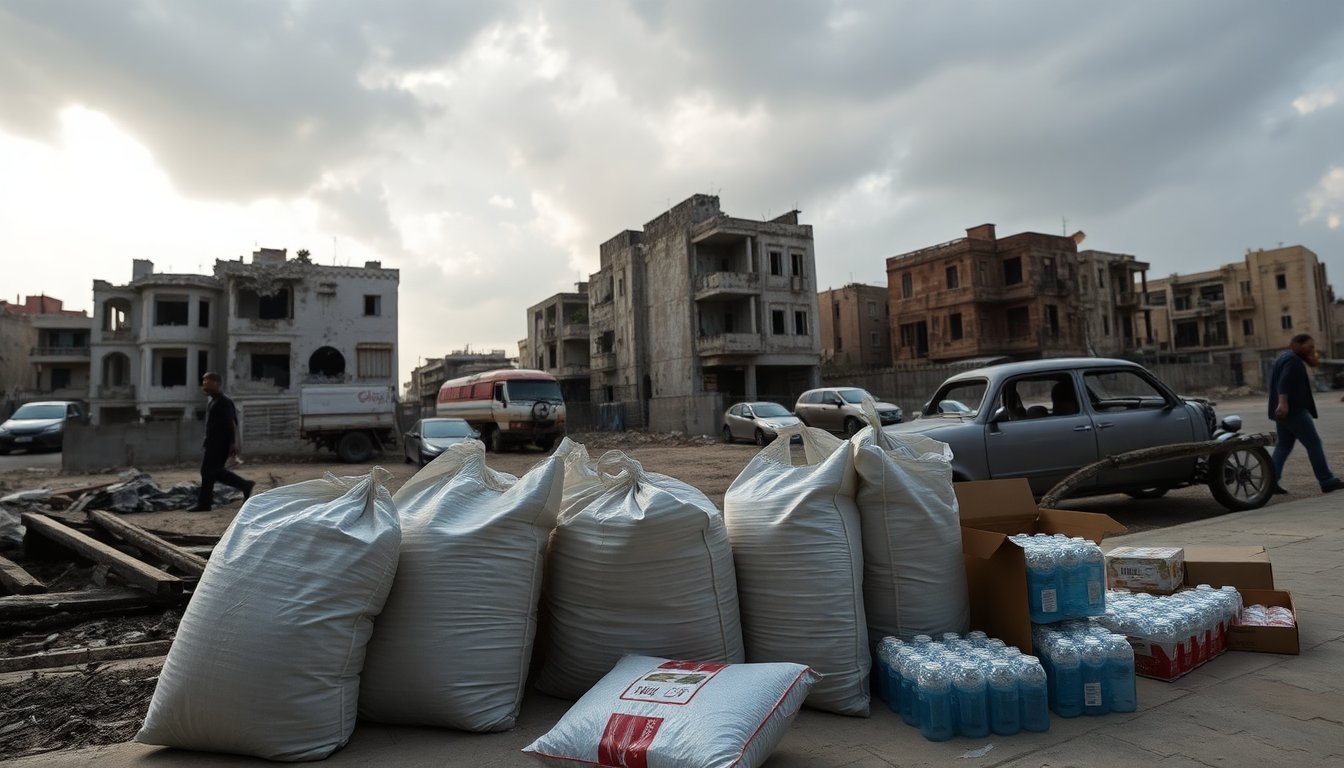Table of Contents
The ongoing conflict between Israel and Hamas has escalated as both sides engage in a series of accusations regarding violations of a cease-fire agreement. This exchange has intensified hostilities and jeopardized humanitarian aid efforts, raising serious concerns for civilians in the affected areas.
Reports indicate that Israel intends to reduce the flow of humanitarian assistance to Gaza. This decision follows rising frustration among families of hostages, who express outrage over the slow recovery of remains. Out of 28 deceased individuals, only four bodies have been returned, provoking deep emotions among their loved ones.
Accusations of cease-fire violations
With tensions rising, both Israel and Hamas have made serious allegations against each other regarding breaches of the cease-fire. Each side claims the other has failed to adhere to the agreement, resulting in a cycle of blame that exacerbates the already volatile situation.
Israel’s perspective
From Israel’s viewpoint, the government contends that Hamas has engaged in actions that violate the cease-fire, including rocket fire and military operations. Officials assert that such provocations endanger the fragile balance needed for peace and security in the region. Consequently, Israel is reconsidering its humanitarian aid strategy to pressure Hamas into compliance.
Hamas’s response
In response, Hamas rejects these accusations, claiming that Israel is responsible for undermining the cease-fire. They cite airstrikes and military operations in Gaza as evidence of Israeli aggression, arguing that these actions create an environment of fear and instability for the Palestinian people. Hamas leadership has vowed to respond to any perceived threats, complicating the humanitarian situation further.
The humanitarian crisis deepens
As accusations continue, the humanitarian situation in Gaza deteriorates. With Israel threatening to cut back on aid, the outlook for civilians appears increasingly dire. Essential supplies such as food, water, and medical assistance are already scarce, worsening the suffering of those caught in the conflict.
Impact on families of hostages
The families of deceased hostages are particularly affected by the current climate. Their anguish is palpable as they await the return of their loved ones’ remains. The slow recovery process heightens their grief, leading them to voice anger at both sides. They demand accountability and a more humane approach to the ongoing conflict, emphasizing the need for respect for human life amidst the chaos.
The role of the international community
The international community observes with concern as this situation unfolds. Calls for peace and a renewed commitment to humanitarian principles have emerged from various global leaders. However, the effectiveness of these interventions remains to be seen. Many argue that a more proactive stance is necessary to facilitate dialogue and prevent further escalation.
A call for resolution
The cycle of accusations between Israel and Hamas regarding cease-fire violations not only fuels the conflict but also endangers innocent lives. As humanitarian aid becomes increasingly threatened, the urgency for a sustainable resolution and respect for human rights grows. Both parties must recognize the devastating impact of their actions and work towards a peaceful solution that prioritizes the well-being of civilians caught in the conflict.


